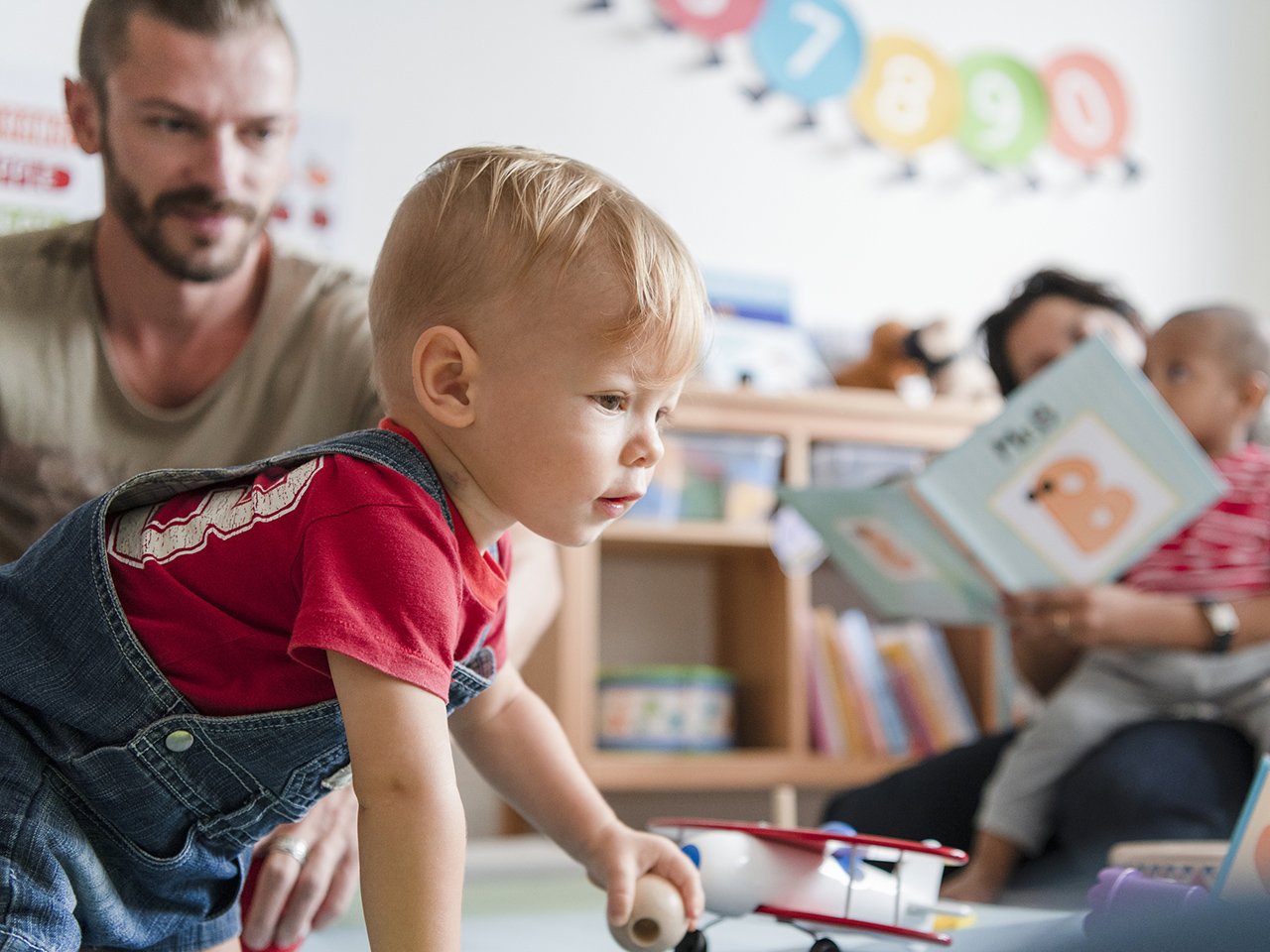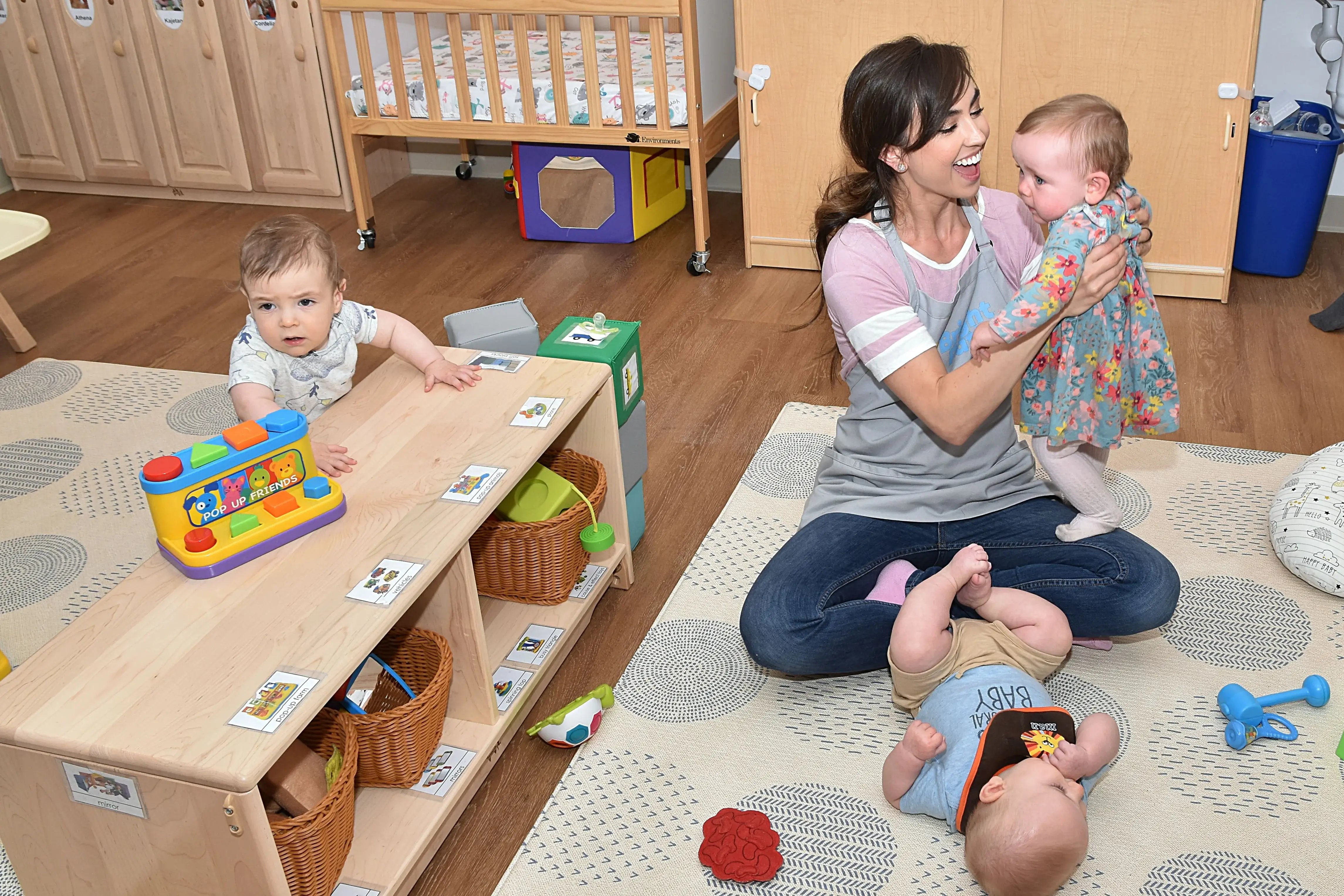Why Parents Trust A Professional Child Care Center For Their Children
Wiki Article
The Function of Childcare in Fostering Social Skills and Early Understanding
Daycare acts as a considerable setting for little ones, assisting in essential social communications that advertise early discovering. In this organized setting, children involve with peers and caretakers, creating important interaction and cooperation abilities. As they navigate play and different activities, they discover to solve disputes and construct emotional intelligence. Comprehending the nuances of these communications reveals the profound influence day care has on a child's growth, shaping their future relationships and scholastic preparedness. What particular skills do youngsters get in this setup?The Importance of Social Interaction in Day Care
While numerous parents recognize the relevance of very early childhood education, the role of social communication in day care is frequently underestimated. Childcare settings offer youngsters with important opportunities to involve with peers, promoting vital social abilities. During these developmental years, kids find out to browse numerous social characteristics, such as sharing, teamwork, and conflict resolution. Connecting with diverse age groups and characters boosts their capacity to adjust to various atmospheres and develop empathy in the direction of others.
Structure Communication Abilities Via Play
Play acts as an effective medium for kids to construct vital communication skills in daycare settings. With numerous play activities, children talk, express their ideas, and find out to listen to others. Role-playing games, for instance, motivate them to make use of language in various contexts, advertising vocabulary expansion and understanding of social hints.
Storytelling during play enables youngsters to share feelings and concepts, helping them establish narrative skills and confidence in their spoken expressions. Generally, play not only works as a pleasurable leisure activity however likewise as an essential system for creating the interaction skills required for successful social communications in later life.
Motivating Participation and Synergy
Collaboration and teamwork are necessary abilities that youngsters can grow in daycare settings. With different team activities, such as developing tasks or collaborative video games, youngsters learn to share obligations and pursue typical goals. These interactions promote an understanding of the value of paying attention to others, bargaining roles, and compromising when essential.In childcare settings, caretakers usually develop chances for kids to engage in team effort by motivating them to join group jobs. This not only assists kids create social bonds however likewise cultivates a feeling of belonging and area.
As they navigate these cooperative experiences, kids get valuable insights into the dynamics of collaborating with peers. They find out to appreciate varied perspectives and acknowledge that each member contributes distinctly to the group initiative. Inevitably, these very early lessons in teamwork and synergy lay the foundation for healthier relationships and reliable collaboration in future social and scholastic setups.
Structured Understanding Activities and Cognitive Advancement
Structured knowing activities play an essential function in promoting cognitive growth in little ones (Daycare North York). These tasks, that include problems, storytelling, and hands-on experiments, stimulate crucial thinking and analytic skills. In a day care setup, organized knowing urges children to engage with their peers, improving their capability to process information and recognize various concepts
Via led play and interactive jobs, youngsters create site web foundational skills such as numeracy and literacy. For circumstances, tasks centered around numbers can assist children understand mathematical ideas, while storytelling improves language procurement and understanding. Furthermore, organized discovering enables teachers to assess developing progress and dressmaker tasks to specific understanding needs.

Incorporating a diverse variety of organized activities not only promotes cognitive development yet also prepares children for future scholastic success. By providing a balanced environment that fosters exploration and questions, daycare programs play a necessary duty fit the cognitive capacities of young learners.
Promoting Emotional Knowledge and Self-confidence
Psychological knowledge and self-confidence are important elements of a youngster's advancement, complementing the cognitive abilities promoted through structured discovering tasks. In childcare settings, kids are given with opportunities to express their feelings and engage in social interactions, which are essential for developing psychological recognition. Via led play and group activities, children discover to determine their feelings, acknowledge those of others, and create compassion.Communication with caregivers and peers helps to cultivate self-confidence and strength. Favorable support and motivation from adults equip youngsters to take risks and face obstacles, fostering a sense of accomplishment. As they browse social dynamics, children develop confidence in their abilities to interact, collaborate, and settle conflicts - Child Care Near Me. This caring setting enables the steady advancement Web Site of emotional knowledge, which is necessary for future interpersonal relationships and general well-being. Consequently, day care plays a substantial role in cultivating both emotional knowledge and self-confidence in young kids
Often Asked Questions
How Can Moms And Dads Select the Right Daycare for Their Youngster?
Moms and dads ought to consider variables such as location, personnel credentials, safety and security standards, curriculum, and reviews from various other parents when picking the appropriate daycare for their child, ensuring it aligns with their youngster's developing demands and family values.
What Age Is Ideal for Beginning Daycare?

Just How Does Daycare Effect Children's Actions in the house?
Day care usually positively affects kids's habits in the house by enhancing social abilities, advertising independence, and motivating psychological guideline (Daycare North York). Because of this, youngsters may show better communication and cooperation, bring about even more harmonious household dynamicsAre There Any Kind Of Disadvantages to Childcare Participation?
Yes, there are downsides to daycare attendance, including potential splitting up anxiousness, direct exposure to ailments, and inconsistent caregiving. These variables can impact a youngster's psychological wellness and change in your home, affecting general household dynamics.How Can Moms And Dads Assistance Social Skills Found Out at Daycare?
Parents can sustain social skills learned at daycare by assisting in playdates, encouraging cooperative activities, modeling positive interactions, going over feelings, and strengthening sharing and communication in your home, therefore improving their kid's social advancement and self-confidence.Day care offers as a substantial atmosphere for young children, helping with crucial social interactions that advertise very early knowing. Daycare you can try these out setups give kids with invaluable chances to involve with peers, promoting important social abilities. Play serves as a powerful medium for children to develop important interaction skills in childcare setups. In childcare settings, kids are provided with chances to share their emotions and engage in social interactions, which are critical for developing emotional recognition. Daycare usually favorably influences youngsters's behavior at home by improving social abilities, promoting independence, and encouraging psychological regulation.
Report this wiki page